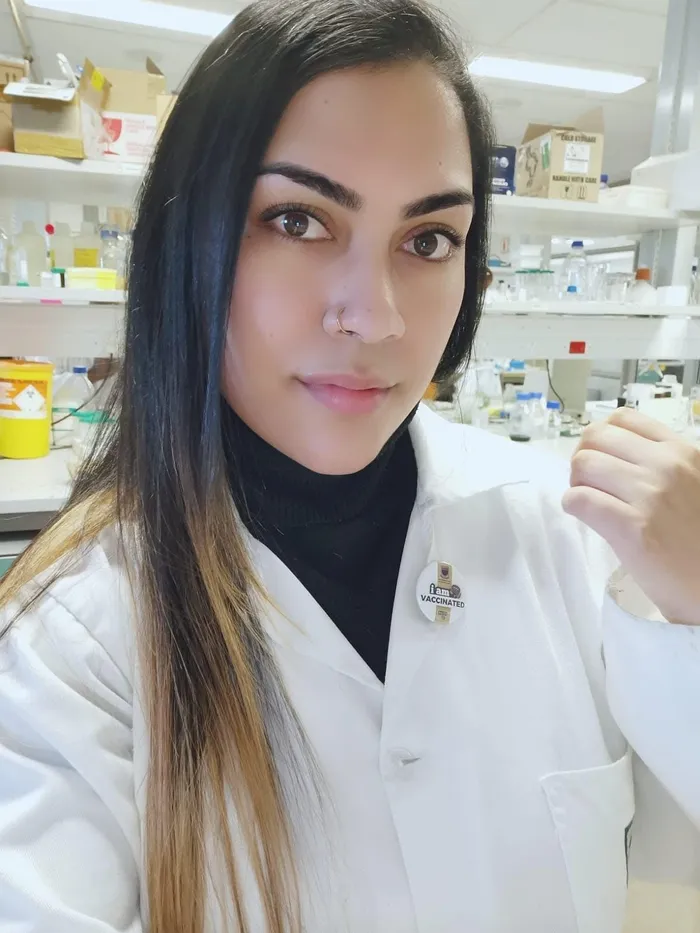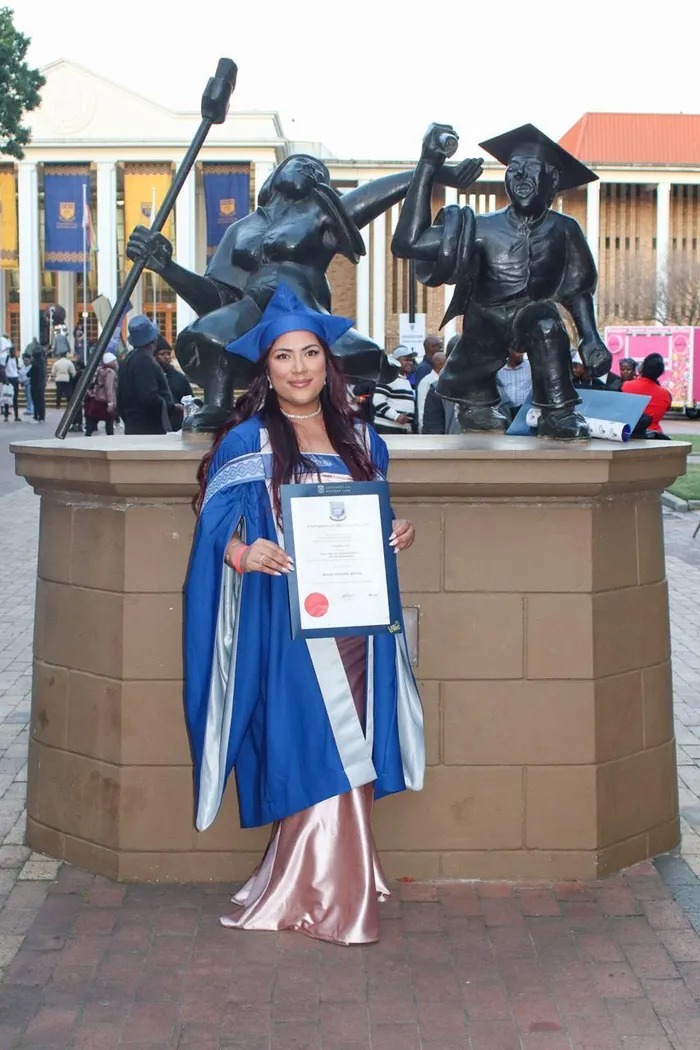
. Scientist, Dr Miché Desline Meyer from Mitchell’s Plain sacrificed sleeping in her car to complete her PhD.
Image: supplied
Scientist, Dr Miché Meyer, 32, who hails from Mitchells Plain sacrificed sleeping in her car to complete her PhD project during two difficult years of her studies when she faced the challenges of the global pandemic and load shedding.
Being raised by a single mom and being exposed to gangsterism and drugs in the community that she grew up in, she completed her degree of Doctor of Philosophy in Biotechnology at UWC and her Bachelor’s, Honours, Master’s, and now her PhD in Biotechnology, relying on National Student Financial Aid Scheme (NSFAS) funding.
Today, she inspires other young scientists with her vision.
“My vision is to contribute to developing affordable diagnostic tools and treatments for diseases like HIV, while also inspiring the next generation of scientists. I don’t just want to inspire from a distance, I actively teach and mentor undergraduate and postgraduate students, which is one of the most rewarding parts of my journey,” she said.
“To the young people of Mitchells Plain and beyond, you don’t need gangs or drugs to feel powerful."
She is also the only one in her family to reach this level of education and her determination has earned her a seat in the global arena to do her research internationally in countries such as Italy, USA and Australia.
“I grew up in Mitchells Plain, a community that’s too often in the news for gangsterism, drugs, and violence,” she told the Cape Argus.

Miché Meyer.
Image: supplied
“As a single parent, my mother instilled perseverance and discipline in me. She showed me that hard work and sacrifice pay off, and that education is something no one can take away. This degree is hers as much as it is mine. We did it, mom!.”
Faced with obstacles as she pushed to complete her studies while she slept in her car to complete her PhD project.
“I completed the degree Doctor of Philosophy in Biotechnology at UWC and I am the first in my family to reach this level of education, and it represents not just personal achievement but a breaking of barriers for my community too.
“I started my PhD during the Covid-19 pandemic, which meant delays, setbacks, and project changes. After two years of difficulties, I actually completed my PhD project in just ten months, working seven days a week, through stage 6 load shedding, often even sleeping in my car at the lab to make it work. Financially, I relied on NSFAS and later National Research Funding (NRF) funding to get through my studies.
“Beyond biotechnology, my work has expanded into nanotechnology, molecular biology, and diagnostic development, which reflects how science connects different disciplines to create an impact.
“I’m currently a postdoctoral fellow at UWC.”
Her mother Debbie Meyer, who is also a counsellor at the Parents Centre in the same community said her daughter had defied the odds with great support.
"I work with pregnant mothers, I would always encourage young mother who dropped out of school to go back.
"I am proud of my daughter coming from the same community.
"This is to motivate young people, that they can do it."
Cape Argus
Related Topics: